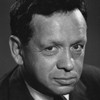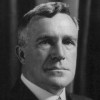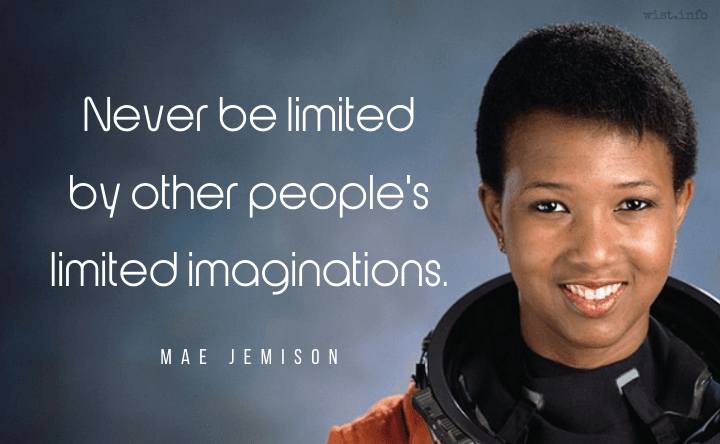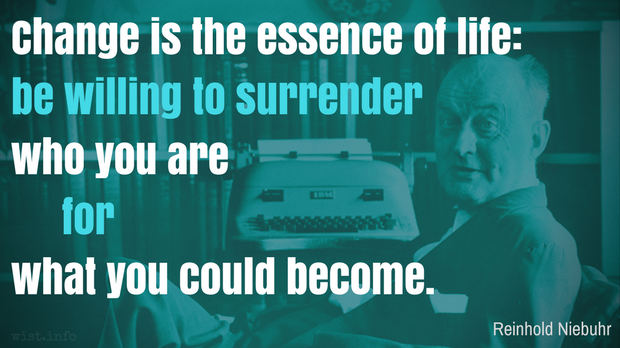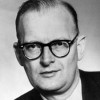Strephon kissed me in the spring,
Robin in the fall,
But Colin only looked at me
And never kissed at all.Strephon’s kiss was lost in jest,
Robin’s lost in play,
But the kiss in Colin’s eyes
Haunts me night and day.
Quotations about:
possibility
Note not all quotations have been tagged, so Search may find additional quotes on this topic.
Sometimes in a vision, I see a world of happy human beings, all vigorous, all intelligent, none of them oppressing, none of them oppressed. A world of human beings aware that their common interests outweigh those in which they compete, striving toward those really splendid possibilities that the human intellect and the human imagination make possible such a world as I was speaking of can exist if everyone chooses that it should. And if it does exist, if it does come to exist, we shall have a world very much more glorious, very much more splendid, more happy, more full of imagination and happy emotions, than any world that the world has ever known before.
Bertrand Russell (1872-1970) English mathematician and philosopher
Interview by Woodrow Wyatt, BBC TV (1959)
Collected in Bertrand Russell's BBC Interviews (1959) [UK] and Bertrand Russell Speaks His Mind (1960) [US]. Reprinted (abridged) in The Humanist (1982-11/12), and in Russell Society News, #37 (1983-02).
The thousands of possible lives that used to spread out in front of me have snapped shut into one, and all I get is what I’ve got. It’s time to pass on the possibilities, all those deliciously half-open doors, to my children, and drive them to the airports, and wish them bon voyage.
I have believed that we are neither angels nor devils, but humans, with clusters of potentials in both directions. I am neither an optimist nor pessimist, but a possibilist.
Maxwell "Max" Lerner (1902-1992) American journalist, columnist, educator
Who’s Who in America, “Max Lerner”
Summary of his beliefs recorded in his Who's Who entry. Quoted in "Max Lerner, Writer, 89, Is Dead; Humanist on Political Barricades," New York Times (6 Jun 1992).
Love unlocks doors and opens windows that weren’t even there before.
Mignon McLaughlin (1913-1983) American journalist and author
The Second Neurotic’s Notebook, ch. 1 (1966)
(Source)
We are all such a waste of our potential, like three-way lamps using one-way bulbs.
Mignon McLaughlin (1913-1983) American journalist and author
The Neurotic’s Notebook, ch. 5 (1963)
(Source)
I have no use for people who have learned the limits of the possible.
Every fellow is really two men — what he is and what he might be; and you’re never absolutely sure which you’re going to bury till he’s dead.
George Horace Lorimer (1867-1937) American journalist, author, magazine editor
Old Gorgon Graham: More Letters from a Self-Made Merchant to His Son, ch. 12 (1904)
(Source)
Never be limited by other people’s limited imaginations. There were people who said, “You can’t go into space. You can’t go to the moon.” If you adopt their attitudes, then the possibility won’t exist because you’ll have already shut it out. Yes, you can hear other people’s wisdom, but you’ve got to re-evaluate the world for yourself.
Mae Jemison (b. 1956) American engineer, physician, astronaut
Interview, Chicago Sun-Times (May 1994)
(Source)
It’s the possibility of having a dream come true that makes life interesting.
Listen to the MUSTN’Ts, child,
Listen to the DON’Ts
Listen to the SHOULDN’Ts
The IMPOSSIBLES, the WON’Ts
Listen to the NEVER HAVEs
Then listen close to me —
Anything can happen, child,
ANYTHING can be.
Everything is possible for an eccentric, especially when he is English.
How many things have been denied one day, only to become realities the next!
Jules Verne (1828-1905) French novelist, poet, playwright
From the Earth to the Moon (1865)
(Source)
Surely, in the light of history, it is more intelligent to hope rather than to fear, to try rather than not to try. For one thing we know beyond all doubt: Nothing has ever been achieved by the person who says, “It can’t be done.”
Even in the most wretched being there is a tiny hook on which a thread of salvation could be fastened.
Marie von Ebner-Eschenbach (1830-1916) Austrian writer
Aphorisms [Aphorismen] (1880) [tr. Scrase and Mieder (1994)]
(Source)
With a view to poetry, an impossible thing that is believable is preferable to an unbelievable thing that is possible.
[πρός τε γὰρ τὴν ποίησιν αἱρετώτερον πιθανὸν ἀδύνατον ἢ ἀπίθανον καὶ δυνατόν.]
Aristotle (384-322 BC) Greek philosopher
Poetics [Περὶ ποιητικῆς, De Poetica], ch. 24 / 1461b.11 (c. 335 BC) [tr. Sachs (2006)]
(Source)
Original Greek. Alternate translations:
- "The poet should prefer probable impossibilities to improbable possibilities." [tr. Butcher (1895)]
- "A likely impossibility is always preferable to an unconvincing possibility." [tr. Bywater (1909)]
- "You should prefer a plausible impossibility to an unconvincing possibility." [tr. Margoliouth (1911)]
- "For poetic effect a convincing impossibility is preferable to that which is unconvincing though possible." [tr. Fyfe (1932)]
- "Probable impossibilities are preferable to implausible possibilities." [tr. Halliwell (1986)]
- "In relation to the needs of the composition, a believable impossibility is preferable to an unbelievable possibility." [tr. Janko (1987)]
- "With respect to the requirement of art, the probable impossible is always preferable to the improbable possible."
- "For the purposes of poetry a convincing impossibility is preferable to an unconvincing possibility."
Nought venter nought have.
John Heywood (1497?-1580?) English playwright and epigrammist
Proverbes, Part 1, ch. 11 (1564)
(Source)
More commonly rendered, "Nothing ventured, nothing gained."
Do not permit what you cannot do to interfere with what you can do.
John Wooden (1910-2010) American basketball player and coach
Coach Wooden One-on-One, “Day 25” (2003) [with Jay Carty]
(Source)
Variant: "Do not let what you cannot do interfere with what you can do."
Because your own strength is unequal to the task, do not assume that it is beyond the powers of man; but if anything is within the powers and province of man, believe that it is within your own compass also.
[Μή, εἴ τι αὐτῷ σοὶ δυσκαταπόνητον, τοῦτο ἀνθρώπῳ ἀδύνατον ὑπολαμβάνειν, ἀλλ̓ εἴ τι ἀνθρώπῳ δυνατὸν καὶ οἰκεῖον, τοῦτο καὶ σεαυτῷ ἐφικτὸν νόμιζε.]
Marcus Aurelius (AD 121-180) Roman emperor (161-180), Stoic philosopher
Meditations, Book 6, #19 [tr. Rendall (1901 ed.)]
(Source)
Original Greek. Alternate translations:
- "Do not ever conceive anything impossible to man, which by thee cannot, or not without much difficulty be effected; but whatsoever in general thou canst Conceive possible and proper unto any man, think that very possible unto thee also." [tr. Casaubon (1634), #18]
- "Because you find a Thing very difficult, don't presently conclude that no Man can master it. But whatever you observe proper, and practicable by Another, believe likewise within your own power." [tr. Collier (1701)]
- "If a thing is difficult to be accomplished by thyself, do not think that it is impossible for man: but if anything is possible for man and conformable to his nature, think that this can be attained by thyself too." [tr. Long (1862)]
- "Because you find a thing very difficult, do not at once conclude that no man can master it. But whatever you observe proper and practicable by another, believe likewise within your power." [tr. Zimmern (1887)]
- "Do not think that what is hard for thee to master is impossible for man; but if a thing is possible and proper to man, deem it attainable by thee." [tr. Morgan, in Bartlett's Familiar Quotations (1894)]
- "Because thou findest a thing difficult for thyself to accomplish do not conceive it to be impracticable for others; but whatever is possible for a man and in keeping with his nature consider also attainable by thyself." [tr. Haines (1916)]
- "Do not because a thing is hard for you yourself to accomplish, imagine that it is humanly impossible: but if a thing is humanly possible and appropriate, consider it also to be within your own reach." [tr. Farquharson (1944)]
- "Because a thing is difficult for you, do not therefore suppose it to be beyond mortal power. On the contrary, if anything is possible and proper for men to do, assume that it must fall within your own capacity." [tr. Staniforth (1964)]
- "Not to assume it's impossible because you find it hard. But to recognize that if it's humanly possible, you can do it too." [tr. Hays (2003)]
- "If something is difficult for you to accomplish, do not then think it impossible for any human being; rather, if it is humanly possible and corresponds to human nature, know that it is attainable by you as well." [tr. Needleman/Piazza (2008)]
I have argued flying saucers with lots of people. … I was interested in this: they keep arguing that it is possible. And that’s true. It is possible. They do not appreciate that the problem is not to demonstrate whether it’s possible or not, but whether it’s going on or not. Whether it’s probably occurring or not, not whether it could occur.
His religion at best is an anxious wish, — like that of Rabelais, a great Perhaps.
Thomas Carlyle (1795-1881) Scottish essayist and historian
“Burns,” Edinburgh Review No. 96, Art. 1 (1828-12)
(Source)
A review of Lockhart, The Life of Robert Burns (1828).




